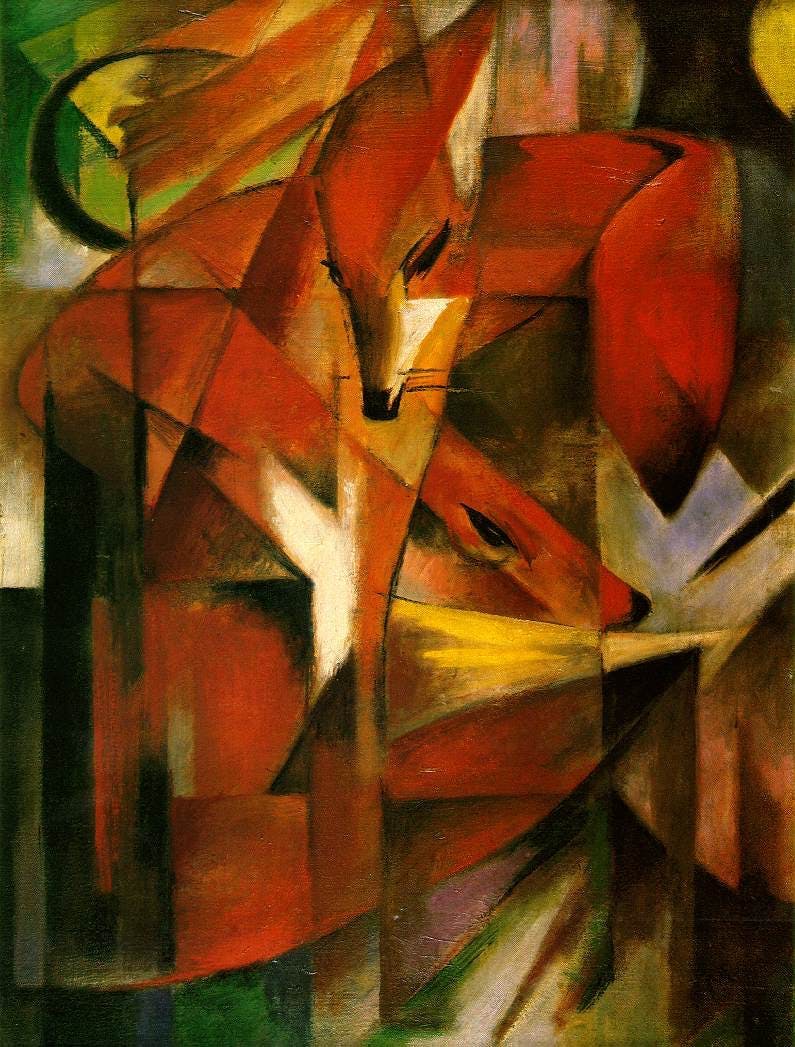A Franz Marc Masterpiece is Returned to Heirs
The city of Düsseldorf has returned a Franz Marc painting to the heirs of its original owners, who fled the Nazis.
Füchse (Foxes), a major work by the German expressionist Franz Marc from 1913, which has been part of the Düsseldorf City Art Collection since 1962, will now be returned to the heirs of its original owners. The painting was a gift to the city from the entrepreneur Helmut Horten, who had bought it from the German-American film director William Dieterle the year before. Dieterle, in turn, had acquired the painting in 1940 from the art dealer Karl Nierendorf, who had emigrated from Berlin to New York. Nierendorf had offered the painting to buyers in New York, including the Museum of Modern Art (MoMA), on behalf of the original owners.
The original owners were the Jewish banker and stockbroker Kurt Grawi and his wife Else from Berlin, who had been persecuted and disenfranchised by the Nazis beginning in 1933. In November 1939, Grawi was temporarily imprisoned in Sachsenhausen concentration camp. Afterwards, he decided to leave Germany and emigrate to Chile.
After the family's fortunes were minimised through compulsory payments, Grawi decided with a heavy heart to part with Franz Marc's Füchse, his favourite painting that he had bought in 1928, in order to ensure the family's livelihood abroad. Their only other form of income at the time was from Else's work as a seamstress. Grawi had the masterpiece brought to New York through friends of his art dealer, where it was finally sold to William Dieterle.

In 2015, the heirs of Kurt and Else Grawi contacted the Düsseldorf City Art Collection and requested the return of the painting. The case, however, was not entirely clear because it did not concern looted art that had been stolen from the owners by the Nazis, but rather escape art that had been sold by the owner himself.
See also: The Top 10 Stolen Masterpieces
The city of Düsseldorf submitted the case to the advisory commission, also known as the Limbach Commission, which investigates the return of cultural property seized by Nazi persecution, in particular Jewish property. At the end of March of this year, the commission recommended restitution of the painting to the Grawi's heirs, since Kurt Grawi would not have voluntarily sold his favourite picture if he had not had to flee Germany. Based on this report, the city of Düsseldorf has decided to return the painting.
This case could set a precedent for further concerns of this kind as the handling of escape art, in contrast to the handling of looted art, is not precisely defined by law.


